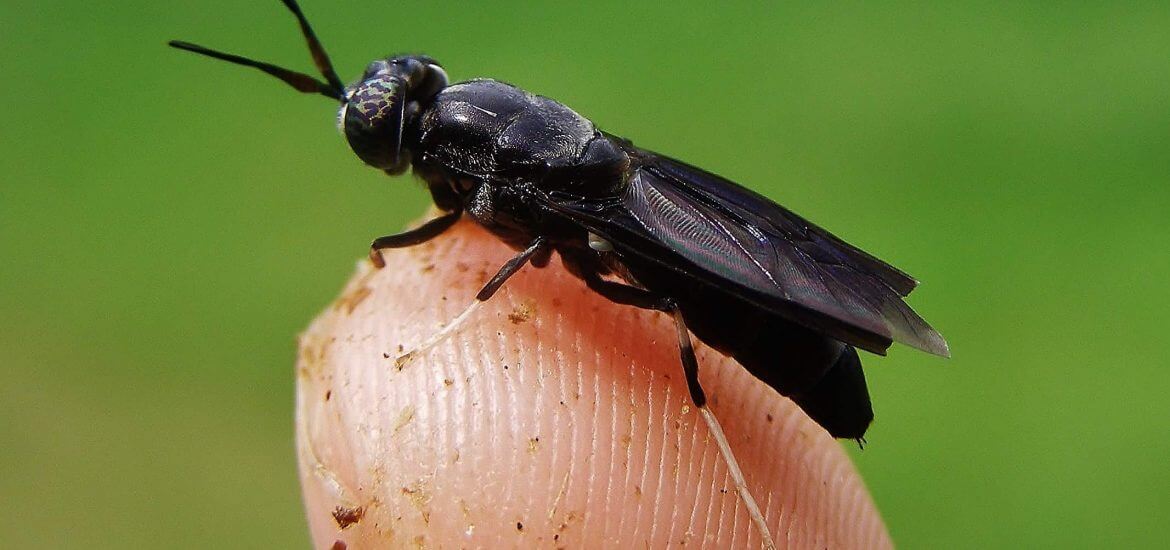The black soldier fly (Hermetia illucens) is known for its ability to treat organic waste, including food leftovers.
In recent years, this fly has gained great popularity worldwide, because its larvae are able to recycle various organic substrates, such as manures, food and crop wastes. The biomass produced by the activity of the larvae can be used in the feeding of agricultural animals such as pigs, chickens and fish.
The female of the black soldier fly deposits a mass of approximately 500 eggs in cracks near decomposing organic matter, such as manure, carrion, garbage and organic waste. The eggs hatch into larvae in about four days.
During larval development, the larvae of the black soldier fly are devouring insatiable organic matter. Since in the future they will depend on the fat stored in these stages by the time they reach the adult stage.
Chinese researchers sequenced the genome of the black soldier fly and used genetic editing methods to optimize its use in waste recycling.
The insect can convert waste into its own protein reserves, which can then be used as medicine and animal feed.
In order to further exploit their potential for organic recycling, researchers from the Center for Excellence in Plant Molecular Sciences, attached to the Chinese Academy of Sciences, conducted genomic analyzes with high performance sequencing and bioinformatic analysis.
1.1 gigabytes of data and a set of 16,700 genetic models on this beneficial species were generated.
After analyzing the genes related to septic adaptation, including immune system factors and olfactory receptors, the scientists turned to genetic editing to achieve a black soldier fly that does not fly and has greater feeding capacity, which will help increase its production.
The study provides valuable genomic and technical resources to optimize the species for industrialization. The research was published in the journal Cell Research.

